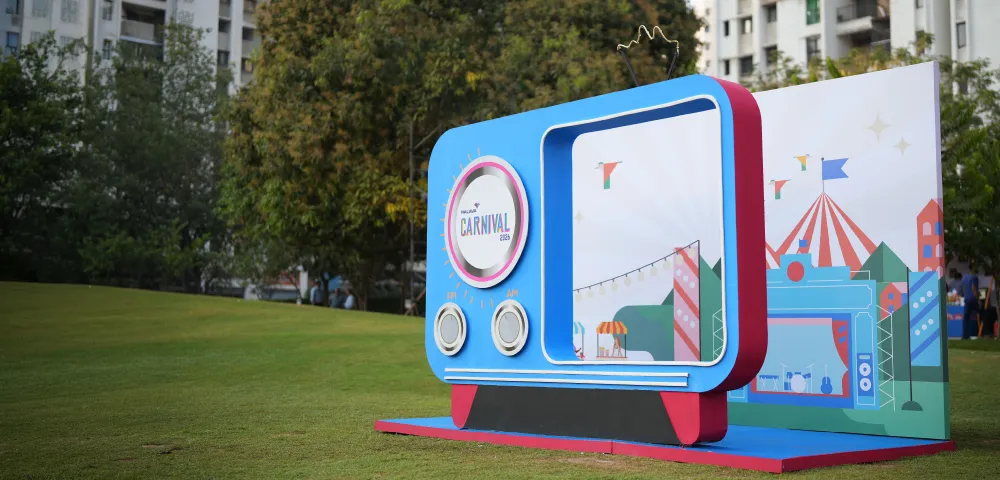IGR Maharashtra 2025: Everything You Need to Know About Property Registration and Online Document Access
By lodha
October 15, 2025

The landscape of property ownership in India has transformed significantly over the past decade, with transparency, digitisation, and ease of access taking centre stage. A critical part of this transformation is the role played by the IGR Maharashtra – the Inspector General of Registration, a key authority responsible for property registration, document verification, and record-keeping in the state. As one of the most economically active states in the country, Maharashtra sees a large volume of property transactions annually. The IGR’s office has continuously upgraded its systems to facilitate both developers and homebuyers, ensuring that house registration is a seamless and secure process. In 2025, with increasing digital adoption and a renewed focus on governance efficiency, the IGR continues to redefine the property ownership experience.
Understanding the IGR Maharashtra System
The IGR Maharashtra is the nodal agency responsible for registering all documents related to property transactions in the state. This includes agreements for sale, sale deeds, leave and licence agreements, mortgage deeds, gift deeds, and more. Every legal transaction that alters the ownership, lease, or use of a property must be recorded with the IGR to ensure its enforceability. This official registration not only establishes legal ownership but also helps prevent disputes, fraud, and duplicate transactions. The government uses these records to track the real estate market in India, levy stamp duty and registration charges, and provide legal safeguards for property ownership.
Key Steps in Property Registration
The property registration process in Maharashtra is now largely digitised, making it far more efficient than it once was. Here is a simplified outline of the steps involved:
1. Drafting the Agreement
A sale deed or agreement is drafted with details of the property, the buyer and seller, and the agreed terms. In most cases, this is done by legal professionals or facilitated by the developer.
2. Stamp Duty and Registration Fee
Applicable stamp duty and registration charges are paid online via the GRAS (Government Receipt Accounting System) portal. These rates vary based on location, gender of the buyer, and transaction value.
3. Booking a Slot at the Sub-Registrar Office
The buyer and seller must schedule an appointment with the sub-registrar for biometric verification and physical registration of the deed.
4. Document Submission and Biometric Verification
On the appointment day, all parties appear at the sub-registrar office with identity proofs, PAN cards, photographs, and the printed agreement. Biometric data is captured, and the documents are digitally recorded.
5. Final Registration and Receipt
Once verified, the agreement is registered, and a digital registration receipt is generated. This acts as legal proof of ownership.
Online Document Search and Public Access
One of the most user-friendly features introduced by IGR Maharashtra is the online search facility. Prospective buyers and legal professionals can access property records through the official website (https://igrmaharashtra.gov.in), enabling a quick check on:
- Historical ownership records
- Encumbrance status
- Index II extract
- Market value of properties
- Stamp duty ready reckoner rates
This digital interface enhances transparency and reduces the need for middlemen. It also empowers homebuyers to make informed decisions by verifying the status of a property before purchase—an important safeguard in a complex and fast-paced real estate market in India.
Why IGR Reforms Matter
The consistent improvement in registration services reflects a wider governmental focus on urban planning, infrastructure, and regulated real estate growth. By streamlining processes and improving public access to property information, the IGR plays a vital role in supporting responsible development by real estate companies in India.
In addition, the digitisation of records and paperless transactions helps maintain a reliable, tamper-proof repository of data—critical for institutional investment, policy making, and urban infrastructure planning.
The Lodha Advantage
As one of the most respected real estate companies in India, Lodha is committed to supporting its customers through every step of the homebuying journey—including house registration. All Lodha developments across Maharashtra are meticulously planned, fully compliant, and registered with the IGR Maharashtra system. This not only assures legal clarity but also enables our customers to access documents, verify titles, and complete the registration process with ease.
Our in-house teams provide end-to-end support—from document drafting and stamp duty guidance to slot booking and post-registration assistance—ensuring an effortless and transparent experience. Whether you’re buying a residence in South Mumbai, Thane, or Pune, Lodha offers the assurance of clean titles, swift handovers, and full alignment with all statutory processes.
In Conclusion
The IGR Maharashtra has emerged as a critical enabler in India’s evolving real estate ecosystem, helping safeguard property rights while enhancing transparency and efficiency. For homebuyers, understanding how property registration works and using the available digital tools can make a significant difference in navigating the journey smoothly.
As the real estate market in India continues to mature, partnering with a trusted developer like Lodha ensures not just an exceptional home, but also peace of mind at every step—right from selection to house registration.
You may also like



 Enquire
Enquire
 Call
Call
 chat
chat
 Search
Search





